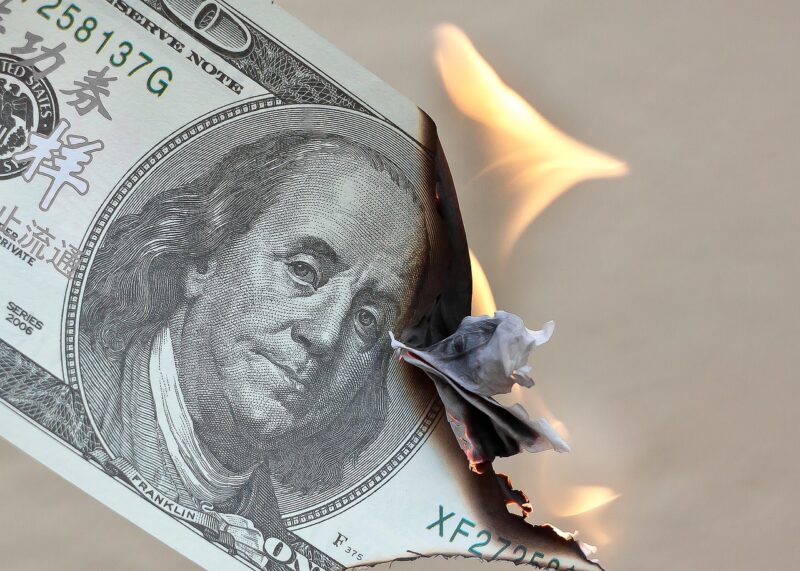
Inflation is a term that often gets thrown around in discussions about the economy, but many people may not fully understand what it means or how it directly impacts their finances. In an era where economic stability is constantly challenged, understanding inflation is crucial for making informed financial decisions. In this article, we will explore the fundamentals of inflation, its causes, its effects on purchasing power, and strategies to mitigate its impact on your personal finances.
1. What is Inflation?
Inflation refers to the rate at which the general level of prices for goods and services rises, leading to a decrease in the purchasing power of money. In simpler terms, when inflation occurs, each unit of currency buys fewer goods and services than it did before. This decline in purchasing power can affect everything from your grocery bill to your savings accounts.
Inflation is typically measured using indexes such as the Consumer Price Index (CPI) or the Producer Price Index (PPI). The CPI measures the average change over time in the prices paid by consumers for a basket of goods and services, providing a comprehensive view of how inflation affects everyday purchases.
2. Causes of Inflation
Inflation can arise from several factors, which can be broadly classified into two categories: demand-pull inflation and cost-push inflation.
Demand-Pull Inflation
Demand-pull inflation occurs when the demand for goods and services exceeds their supply. This increased demand can be due to various factors, including:
- Economic Growth: When the economy grows, consumers and businesses are likely to spend more, driving up demand.
- Government Spending: Increased government expenditure can inject more money into the economy, boosting demand for goods and services.
- Low Unemployment: When unemployment is low, more people have jobs and income, leading to increased consumer spending.
Cost-Push Inflation
Cost-push inflation, on the other hand, occurs when the costs of production increase, leading to a decrease in the supply of goods and services. Factors contributing to cost-push inflation include:
- Rising Raw Material Costs: Increases in the price of essential resources, like oil or metals, can elevate production costs, forcing businesses to raise their prices.
- Labor Costs: Wage increases can lead companies to pass on the extra costs to consumers in the form of higher prices.
- Supply Chain Disruptions: Events like natural disasters or political unrest can disrupt supply chains, leading to shortages and higher prices.
Understanding these causes helps us anticipate inflationary trends and take proactive measures to protect our finances.
3. How Inflation Affects Your Finances
Inflation can have far-reaching effects on various aspects of your financial life:
Purchasing Power
The most immediate impact of inflation is the erosion of purchasing power. As prices rise, you can buy less with the same amount of money. For example, if you used to buy a loaf of bread for $2 but inflation increases the price to $2.50, your $10 can now purchase only four loaves instead of five.
Savings and Investments
Inflation directly affects your savings and investment strategies. If your savings account earns an interest rate of 1% while inflation is at 3%, you are effectively losing money in terms of purchasing power. To combat this, many people turn to investments that typically outpace inflation, such as stocks or real estate.
Interest Rates
Central banks, like the Federal Reserve in the United States, often adjust interest rates to control inflation. If inflation rises, central banks are likely to increase interest rates to cool down the economy. This makes borrowing more expensive, which can affect everything from mortgages to credit card debt.
Wages
While wages may increase in response to rising inflation, salary increases often lag behind inflation rates, leading to real wage stagnation. If your cost of living increases while your pay remains static, your overall financial health may deteriorate.
4. Strategies to Protect Against Inflation
While you cannot control inflation, you can take steps to protect your finances from its effects:
Invest in Assets That Outpace Inflation
Consider investing in assets that typically grow at a rate higher than inflation. Historical evidence suggests that assets like stocks, real estate, and commodities can provide returns that outstrip inflation over time, preserving your purchasing power.
Diversify Your Investment Portfolio
Diversification can help mitigate the risk associated with inflation. By spreading investments across different asset classes, you may increase your chances of keeping pace with or exceeding inflation rates.
Consider Treasury Inflation-Protected Securities (TIPS)
TIPS are government securities designed to protect against inflation. As inflation rises, the principal value of TIPS increases, ensuring that the interest payouts also grow over time.
Review Your Budget Regularly
Make it a habit to review your budget regularly and adjust it according to current prices. Keeping an eye on your spending habits and making necessary adjustments can help you stay financially healthy despite rising costs.
Conclusion
Inflation is a complex economic phenomenon that can significantly affect your personal finances. By understanding what inflation is, its causes, its impact on your financial well-being, and how to prepare for it, you can take proactive steps to protect your financial future. Remember that while inflation may be an inevitable part of the economic landscape, how you manage your finances in relation to it can make all the difference in achieving and maintaining financial stability.






